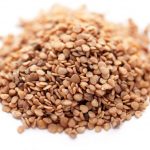
Senna – sources, health benefits, nutrients, uses and constituents at NaturalPedia.com
Wednesday, August 23, 2017 by Frances Bloomfield
http://www.naturalnewsherbs.com/2017-08-23-senna-sources-health-benefits-nutrients-uses-and-constituents-at-naturalpedia-com.html

Senna is a diverse genus of flowering plants spread across the tropics and temperate regions throughout the world. In ancient times and until today, this small shrub is most prized for its purgative effects that make it highly effective as a vomit-inducing substance and as a laxative. Its potency is such that it is often a key ingredient in detoxification teas.
List of known nutrients
Both the leaves and fruit of senna contain anthraquinone glycosides, also known as sennosides, which are naturally occurring phenolic compounds largely believed to be responsible for the laxative effects of senna. These anthraquinone glycosides come in several forms that referred to as A, B, C, and D. Anthraquinone glycosides stimulate contractions in the muscles of the colon, which in turn makes it easier for stool to pass through and out of the body.
In addition to anthraquinone glygocisdes, senna is known to be loaded with other beneficial nutrients and constituents like acetone, ethanol, flavonoids, and tannins.
Medicinal uses for senna
As was previously mentioned, senna is most known for preventing and providing relief from constipation. In addition to causing the colon muscles to contract, one other way senna helps against constipation is by enabling the colon to absorb water and soften stool, leading to stool that can be pushed out with relatively little difficulty. Because of its potency, however, senna should never be taken for more than two weeks and for no more than 10 consecutive days to prevent dependency.
Senna can greatly reduce the risk of hemorrhoids as well. Also known as piles, hemorrhoids are swollen veins found in the lower rectum or anus that can develop from chronic constipation or from sitting for prolonged periods of time, especially on the toilet. The anti-inflammatory quality of senna can provide further relief from the pain of hemorrhoids.
In addition to lowered chances of hemorrhoids, the laxative effects of senna can serve as an anthelmintic too. Anthelmintics are substances that expel parasites or worms from the body; and in the case of senna, it can remove worms or parasites in the gut.
When taken with aromatic herbs such as peppermint, cardamom, or fennel, senna can minimize the symptoms of dyspepsia by decreasing gas build-up in the stomach.
Senna can be used as a treatment for skin conditions like psoriasis, eczema, and acne. This herb is known for its anti-bacterial and anti-inflammatory properties, and a paste from senna will allow the skin to enjoy the benefits of these properties.
Body systems supported by senna
Senna can support the health of the digestive system by preventing constipation, dyspepsia, and the proliferation of intestinal worms and parasites. Moreover, senna contains natural compounds with anti-bacterial properties that make it all the more difficult for fungi, parasites, and bacteria to grow in the digestive system.
Certain compounds in senna can strengthen the hair by binding the protein keratin to hair follicles.
Ways to use senna
Health food stores and specialty shops will carry senna capsules, tablets, liquid extract, tea bags, and loose tea.
While senna tea bags and loose tea are available, some individuals prefer to create their own brew. To make homemade senna tea, pour hot water over a quarter-teaspoon of crushed senna herb and allow the mixture to steep for 10 minutes before straining it. To minimize the cramping effects of senna tea, simply steep crushed senna herb in cold water for 12 hours. Whichever method will be utilized, the result will be an amber-colored senna tea with a faint odor and bitter taste. Ginger, fennel, cinnamon, and coriander will add a bit more flavor to the tea.
Senna tea is best taken before bed so its effects can be felt upon waking up and not during inconvenient hours.
Note: Senna is a potent constipation remedy, and can result in dehydration, electrolyte imbalance, nausea, and vomiting when consumed in excess.
Where to learn more
Summary
Senna can support the health of the digestive system by preventing constipation, hemorrhoids, dyspepsia, and intestinal parasites and worms.
Sources include:
Mdidea.com
HealthyEating.SFGate.com
StyleCraze.com
OrganicFacts.net
HerbWisdom.com
TheRightTea.com
Tagged Under: Tags: Senna






